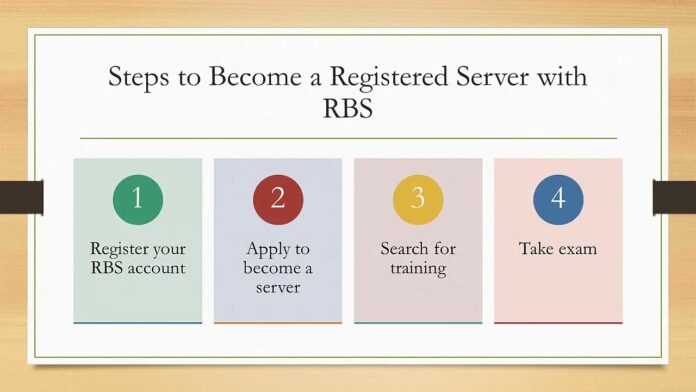Risk-Based Security (RBS) Certification is a pivotal milestone in the careers of professionals involved in risk management and security across various industries. This certification equips individuals with the knowledge and skills necessary to assess, mitigate, and manage risks effectively. Understanding the nuances of RBS Certification, including its requirements and duration, is essential for anyone considering this career-enhancing path.
Importance of RBS Certification in Industries

In today’s dynamic business landscape, risk management and security are paramount. RBS Certification holds significant importance as it validates an individual’s expertise in identifying, evaluating, and addressing risks comprehensively. Companies rely on certified RBS professionals to safeguard their assets, data, and reputation, making Risk-Based Security Certification a hallmark of trustworthiness and competence.
Key Industries Requiring RBS Certification
A wide range of businesses where risk management and security are crucial can benefit from RBS Certification. RBS-certified personnel are widely relied upon by the financial services industry, including banking and insurance, to protect assets and private financial data. RBS knowledge is essential in the healthcare industry for safeguarding sensitive data and maintaining compliance with laws like HIPAA.
Specialists from Risk-Based Security who reinforce networks against cyber attacks and data breaches are advantageous to the IT and technology industry. RBS specialists are used by the manufacturing sector to maintain supply chain security and product safety. Additionally, government organizations look for qualified professionals to manage complex risk environments due to their enormous responsibility for data protection and national security.
Requirements for Candidates
Candidates must meet demanding criteria, guaranteeing that certified professionals have the skills and background required to succeed in risk management and security professions. Candidates typically need at least a few years of relevant job experience in a related sector, as well as a relevant bachelor’s degree. These fundamental training and experience establish the foundations for comprehending complicated risk scenarios.
They must complete a recognized training program to gain specialized expertise, in addition to education and experience. A challenging exam that evaluates their understanding of risk management principles serves as the capstone of these requirements. Meeting these requirements shows a candidate’s dedication to and expertise in risk-based security.
Duration of RBS Certification Programs

The duration of Risk-Based Security Certification programs varies depending on the level and depth of the diploma sought. Typically, foundational credentials can be achieved within a few months, while more advanced diplomae may require a year or more of dedicated study and preparation.
Role of Accredited Training Providers
Accredited training providers play a pivotal role in the journey towards Certification. They serve as the linchpin that bridges aspiring professionals with the knowledge and skills required for success. These providers offer structured training programs designed to meet the exacting standards set by credential bodies.
The role of these providers extends beyond imparting theoretical knowledge. They offer practical insights, hands-on exercises, and real-world scenarios that prepare candidates for the complexities of risk management and security. Furthermore, accredited training providers often have industry experts as instructors, providing valuable industry insights and guidance.
Choosing the right training provider is a critical decision, as the quality of training can significantly impact a candidate’s success in obtaining Risk-Based Security Certification. Opting for accredited providers ensures that candidates receive comprehensive, up-to-date, and relevant instruction, setting them on a path to becoming competent risk-based security professionals.
Theoretical and Practical Components of RBS Training
Theoretical and practical components form the core of the training, providing a holistic understanding of risk management. The theoretical aspect delves into concepts such as risk assessment methodologies, compliance frameworks, and regulatory requirements. It equips learners with the foundational knowledge needed to identify, evaluate, and prioritize risks effectively.
Complementing this theory, the practical component immerses candidates in real-world scenarios. Here, they gain hands-on experience in risk analysis, threat mitigation, incident response, and security strategy development. This experiential learning ensures that professionals are not just well-versed in theory but also adept at applying their knowledge to address practical challenges. The synergy between theory and practice is what empowers RBS-certified individuals to make informed decisions and protect organizations from a myriad of threats.
Assessment and Examination

The journey to Credential culminates in a comprehensive examination that evaluates a candidate’s grasp of risk management concepts and their practical application. Success in these examinations is a testament to the candidate’s readiness to address real-world security challenges.
Benefits of Holding RBS Certification
Holding Certification unlocks a plethora of benefits. Certified professionals enjoy enhanced career prospects, increased earning potential, and greater job security. They are better equipped to navigate the evolving landscape of security threats and compliance requirements, making them invaluable assets to their organizations.
Maintaining and Renewing RBS Certification
Maintaining and renewing Risk-Based Security Certification is vital to staying relevant and upholding professional standards. After achieving certification, individuals must engage in ongoing learning and development, typically through continuing education credits. This ensures that they remain up-to-date with evolving industry trends, regulations, and emerging threats.
Renewal requirements vary by certification body but often involve participating in relevant seminars, workshops, or courses. This commitment to continuous improvement not only keeps professionals well-prepared to address new challenges but also demonstrates their dedication to excellence, enhancing their credibility in the field. By proactively renewing their certification, professionals ensure that their expertise remains a valuable asset to organizations.
Conclusion: Advancing Careers with RBS Certification

In conclusion, RBS Certification is a gateway to a fulfilling and lucrative career in risk management and security. It holds immense value across a wide array of industries, underscoring its significance in today’s world. While the journey towards Risk-Based Security Certification may be demanding, the rewards are well worth the effort. By meeting the requirements, investing in quality training, and maintaining their expertise, individuals can leverage Certification to advance their careers and contribute to the safety and security of organizations worldwide.
In the fast-paced, interconnected global landscape, risk-based security professionals are the vanguards against emerging threats. As industries continue to evolve and adapt to new challenges, the demand for certified experts will only increase. Therefore, embarking on the path of Certification is not just a personal milestone; it’s a commitment to safeguarding the future of business and society.









